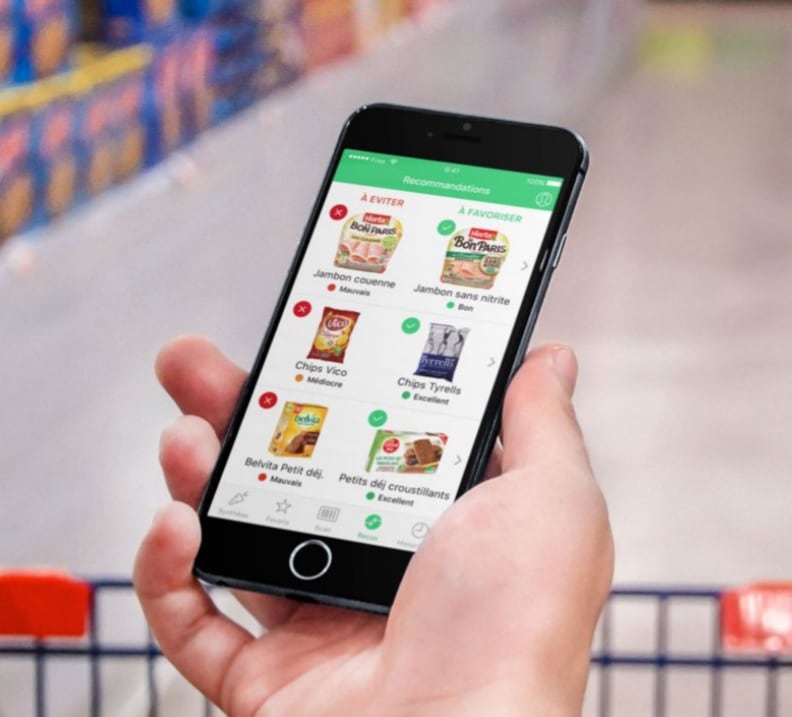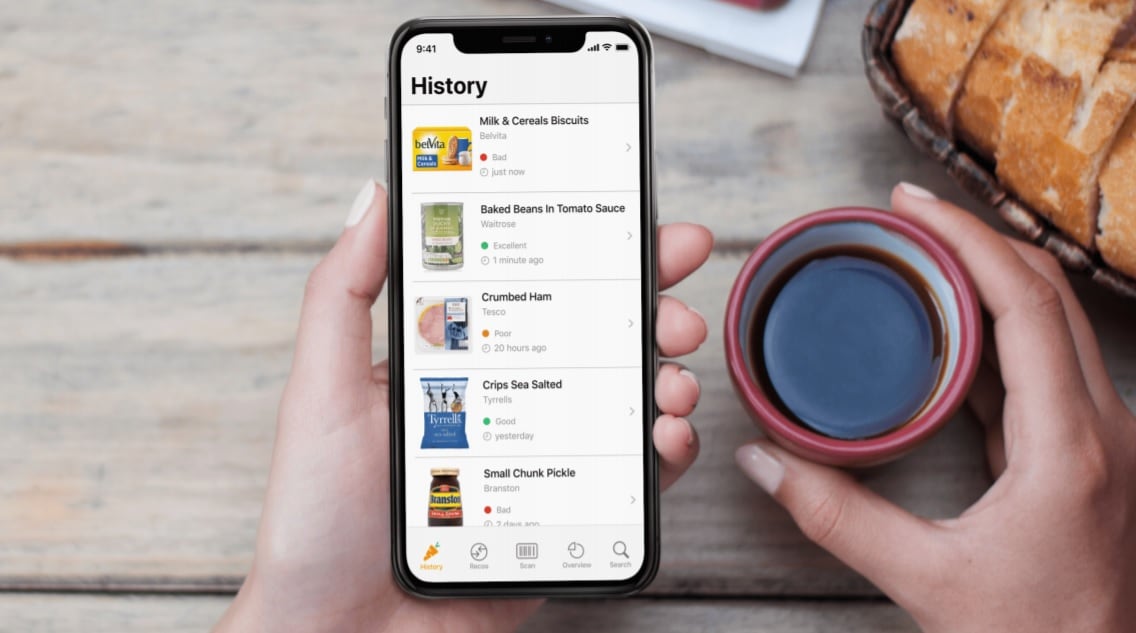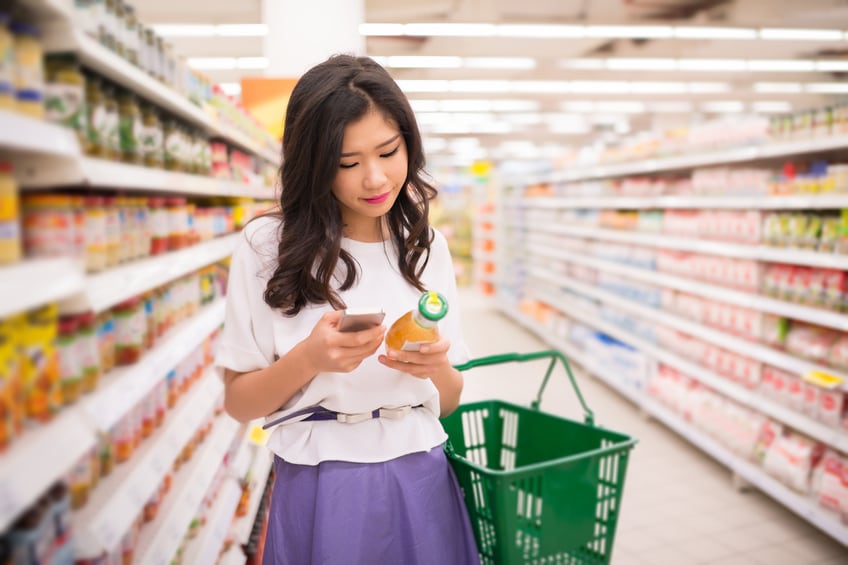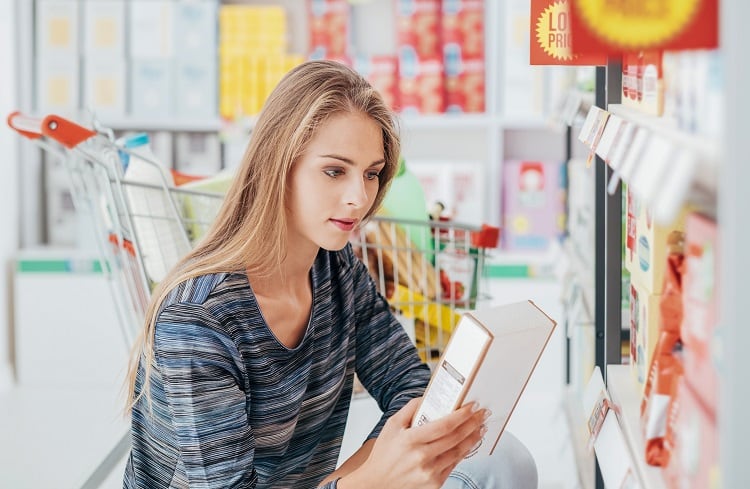Yuka was launched in 2017 by three co-founders: brothers Benoit and François Martin, and friend Julie Chapon.
Since then, the platform has attracted more than 10m users scanning three million barcodes every day and expanded its presence beyond France to Belgium, Switzerland, Luxembourg, Spain, and as of June this year, the UK.
The app works by scanning the barcodes of food and personal care products. The platform then rates the item and offers detailed information to help consumers understand the health of each product.
Where a product is deemed to have a negative impact on the consumer’s health, the app recommends a healthier alternative.
Yuka prides itself on being completely independent and objective regarding its ratings, analysis, and product recommendations. With no in-app advertising, the Paris-based start-up generates revenue from a premium version available to consumers wanting additional features, as well as a nutrition programme sold on its website.
Food product analyses are based on three criteria: nutritional quality, the presence of additives, and its organic aspect.
- Nutritional quality represents 60% if the score and is based on the European NutriScore calculation method.
- The presence of additives represents 30% of the score.
- The organic aspect represents 10% of the score and is based on whether or not the product has the European organic label.
Alternative products, which are recommended if a food item is deemed ‘unhealthy’, are selected using an algorithm incorporating three factors:
- The product category – to recommend a product most similar to the original item.
- The product rating – to recommend only highly-rated products.
- The product availability – to recommend a product that can be easily found in stores.
How does Yuka change the grocery shopping process?
With approximately three million barcode scans per day, 500,000 of which are in France alone, it’s fair to say that Yuka has attracted significant attention in a relatively short space of time.
Yet statistics aside, is Yuka really disrupting the retail sector? How might scanning, analysing, and potentially changing products, be altering the grocery shopping process?
In an effort to better understand the social and behavioural impacts of Yuka’s apparent success, a Paris-based innovation consultancy firm, Unknowns, conducted an independent study.
“Yuka is a big phenomenon in France,” study author and Unknowns consultant, Henri Jeantet, told FoodNavigator. “We have a lot of clients in grocery retail, and were curious to know how Yuka is going to change the grocery shopping process.”

Six men and 12 women aged between 26 and 65 years old participated in the study. The subjects came from a variety of professional backgrounds, including labourers, students, managers, and retirees.
Each participant was accompanied to a grocery store of their choosing, asked to use the Yuka app, and to comment on their product choice during the shop.
Key findings
In practice, the consultancy observed that Yuka simplified the participants’ grocery experience, and helped to justify their choices. The most scanned products were either new, ultra-processed, or had been associated with a health scandal.
“Yuka gives you the perfect justification [to children and others in the household] about additives and nutrition. It is really powerful, it makes shopping easier,” said Jeantet.
Indeed, children enjoyed shopping with Yukka because it gave them a role, he said. “They don’t remain passive. [It enables them to] scan and be active in a controlled environment.”
The study revealed that Yuka was particularly effective when advising against particular products due to the presence of potentially harmful additives. When Yuka advises against a product due to high levels of fat, salt or sugar, however, the app appeared to have influence. In this instance, some consumers still decided to purchase the product as a ‘treat’.
Findings also revealed that in some cases shoppers decided not to use the app. The reasons behind these decisions varied: some said the app made them feel they were depriving themselves of their favourite foods, and that if they followed Yuka’s recommendations, they would feel they had lost their autonomy.
Other shoppers said they didn’t want to be told when they knew they were making a bad choice.
Yuka’s recommendations to consumers to purchase alternative products also revealed interesting findings. On occasion, consumers were pleasantly surprised to learn that the ‘healthier’ product was less expensive than its unhealthy counterpart.
In other instances, consumers deliberately decided against the healthier alternative. These decisions were linked to either cultural tradition, family habits, or an unwillingness to disrupt their families’ eating routines.

Elsewhere, alternative items were not available in-store, were located in a distant aisle, or deemed ‘too different’ from the original product.
In fact, the consultancy found that Yuka’s alternative suggestion function was not ‘completely satisfactory’. “That is because it is complicated to propose an alternative,” said Jeantet. “There is a huge difference between a consumer’s perception of a product and industry’s perception of a product.
“When you need to propose an alternative to a chocolate chip cookie, you cannot recommend a strawberry tartlet. We need more specific alternative suggestions.”
The ‘hardship’ of shopping for a household
Overall, Yuka has a ‘tremendous’ effect on the grocery shopping process, Jeantet told this publication.
“Once people start using Yuka, they transform all their previously cherished products into very different types of products.”
But more significantly, the results confirm the hardship of being responsible for grocery shopping in the household. “A lot of people don’t understand how hard it is,” he said.
This includes the difficulty in finding a product that ‘strikes the right balance’ between been accepted by the children and other members of the household, while being nutritionally beneficial, socially and environmentally acceptable, and not too expensive.
“For every single product you must strike the balance between all those different products. You do that for approximately 1,500 products a year.
“And that’s why people always use the same product. Not because they like it, but because it is so hard to choose a new one,” Jeantet explained.
Unknowns’ study, however, shows how an application like Yuka can help shoppers ‘cut through’ all these processes. “It is really simple. You don’t have to evaluate [the product] by yourself. You don’t have to make a decision.
“The decision is made, and that is a relief for people doing grocery shopping. That is part of the huge success of Yuka.”
Yet once a product is changed, shoppers will stay loyal, he predicted. “Once Yuka is in the house, [consumers] will have another range of products that they won’t chance – once they have made the revolution.”




